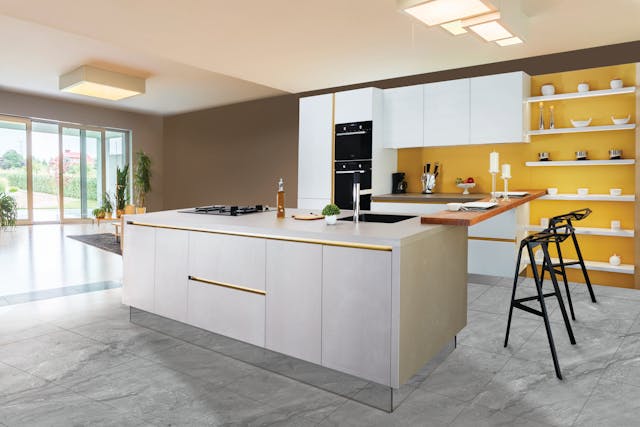
What Are The Things To Consider When Buying A House?
Buying a house is one of the most important decisions you will make in your lifetime.
It's more than just selecting a place to live; it's about investing in your future, accumulating wealth, and creating an environment that feels truly homey.
To make the appropriate decision, you must examine a variety of aspects other than price. Buy Any House UK is a significant milestone that necessitates careful consideration of many issues. Taking the time to thoroughly research and analyze these criteria allows you to avoid frequent traps and make a purchase you will be satisfied with.
Budget and Financial Readiness

Before you start house hunting, assess your financial readiness. Determine how much you can afford to spend on a house by evaluating your:
-
Income
-
Savings
-
Existing debts
Use mortgage calculators to get an estimate of monthly payments and see how they fit into your budget. It’s essential to get pre-approved for a mortgage to understand your borrowing capacity.
This not only helps you set a realistic budget but also makes you a more attractive buyer to sellers. Remember to account for additional costs such as closing fees, property taxes, home insurance, and maintenance expenses. A clear understanding of your financial situation ensures you can comfortably afford your new home without stretching your budget too thin.
Home Size and Layout
Consider the size of the house and its layout. Think about your current needs and how they might change in the future. The number of bedrooms, bathrooms, and overall square footage are critical factors to consider.
The layout of the house should suit your lifestyle. Open floor plans are popular for their spacious feel and flow, while traditional layouts with distinct rooms may offer more privacy. Evaluate the functionality of:
-
Kitchen
-
Living areas
-
Storage spaces
A well-designed layout can enhance your living experience and make your home more enjoyable and practical.
Condition of the Property
The condition of the property is a crucial consideration. A thorough inspection by a professional can reveal potential issues such as structural problems, plumbing or electrical faults, and other necessary repairs. Understanding the condition of the property helps you avoid costly surprises down the line.
Pay attention to the age of the house and its major systems, like the roof, HVAC, and appliances. Older homes may have charm and character but could require more maintenance and updates. On the other hand, newer homes or recently renovated properties might come with modern amenities and fewer immediate repair needs. Weighing these factors helps you make an informed decision about the long-term costs and efforts associated with the property.
Neighborhood and Community
The neighborhood and community play a significant role in your overall satisfaction with your new home. Visit the area at different times of the day and week to get a feel for the community vibe. Are the streets well-maintained and safe? Is there a sense of community among the residents?
Consider the demographics and lifestyle of the neighborhood. If you have children or plan to, proximity to good schools, parks, and recreational facilities is important. For those people, doing work might be more appealing without children, areas with vibrant nightlife, cultural attractions, or proximity to work might be more appealing. A neighborhood that aligns with your lifestyle and preferences can significantly enhance your living experience.
Resale Value
While buying a home is often a long-term commitment, it's essential to consider the resale value. Market trends, location, and property condition all influence a home's future value. Choose a property in a desirable area with good growth potential to ensure that your investment appreciates over time.
Research the real estate market trends in the area. Are property values rising? Is there a demand for homes in the neighborhood? Properties in good school districts or close to major employers often hold their value better. Even if you don’t plan to sell soon, understanding the resale potential can provide peace of mind and financial security.
Commute and Transportation
Your daily commute is a significant factor to consider when buying a house. Proximity to your workplace and access to public transportation can impact your quality of life.
A long, stressful commute can take a toll on your health and well-being, while a short, convenient commute can save you time and reduce stress. Evaluate the transportation options available in the area. Consider the convenience and cost of commuting, including fuel, parking, and tolls.
Future Growth and Development

Consider the potential for future growth and development in the area. Neighborhoods with planned infrastructure projects, new businesses, or residential developments can offer good investment opportunities. Growth can lead to increased property values and improved amenities, making the area more desirable.
Research the local government's plans for the area and talk to residents about any upcoming changes. Understanding the future potential of the neighborhood helps you make a more informed decision about your investment.
Trending
-
1 Jocko Willink's Inspirational Life & Net Worth
Aaqil Ashraf -
2 How Art Shapes Culture and Reflects Human Experience
Luke Fitzpatrick -
3 Meet Felix Williams and Maria Arthuer: The Parents of World Class Winger Nico Williams
Felix Yim -
4 Kai Cenat's Dad and the Enduring Public Interest
Aaqil Ashraf -
5 London Tube Stations Closed as Workers Stage Strikes
Mihir Gadhvi





Comments